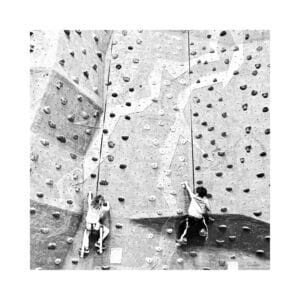“One day, when I’ll have kids, I want to help them develop a growth mindset.” I thought to myself after witnessing the powerful impact growth mindset programs had on students’ attitude, engagement, and achievement.
Back then I worked full time at Mindset Works – a company that was co-founded by Stanford Professor Carol Dweck, Dr. Lisa Blackwell, and Eduardo Briceno. Mindset Works focuses on translating Prof. Dweck’s research findings into programs to teach students and educators a growth mindset – a belief that human abilities and qualities are malleable: that we can develop our intelligence, skills, talents, and other human qualities.
With the knowledge and experience I gained while helping educators implement growth mindset programs at schools, I assumed I would know how to parent with a growth mindset. I thought I would know how to model it to my kids, how to cultivate it, and how to create an environment that fosters learning and growth at home.
I was wrong.
When I became a mom I noticed that I was struggling to show up in ways that were aligned with my values and aspirations. I thought I would be able to thoughtfully navigate challenges and conflicts with little humans. I would listen to their stories with more patience, and I would have more capacity to stay attuned to their deepest needs, as well as not using my “parenting power and authority” often.
I thought parenting would come more easily, and that it would feel more harmonious and “natural”. The reality was far from my expectations. To make it clear, I didn’t expect to have roses without thorns. I did imagine myself reading parenting books, taking classes, making mistakes and investing in learning, but I was confident in my abilities to work hard and figure things out – as I had done throughout my life. But the gap between the way I showed up and my aspirations kept growing. Coupled with the lack of sleep and work, parenting became overwhelming.
At some point, the experience of giving everything I could and feeling like I kept failing awakened the researcher within me to start asking questions like: Why is it so hard? Do other parents also feel that they are mainly just “surviving” and educating less? What does it really take to close the gap?
Do you relate?
When I started asking parents about their parenting experience, I learned I was not alone. On one hand, sharing this experience with others comforted me, as it seemed to be a normal experience. But on the other hand, looking at it through the lens of education, it troubled me, because we are the first teachers for our kids. We shape the place where education begins. While teachers have professional development in place, parents are outside of the loop. I’ve realized that when parents struggle, education suffers. It got me thinking about what education would look like if parents had effective programs in place? How would it impact our kids’ readiness to learn? How would it shape the future?
I felt a great sense of urgency to do something about it, and I embarked on a quest to find answers.
I have spent several years listening to parents’ stories, learning from experts, piloting programs with hundreds of parents, and deepening my knowledge in various areas – from positive psychology, non-violent communication, and psychological safety to self-compassion, vulnerability, and shame. Simultaneously, I was deeply and actively engaged in a cycle of learning, unlearning, and relearning.
The more I learned and the more I listened to fellow parents’ stories, the more I challenged my beliefs and assumptions, questioned my intentions and actions, and even my motivation for growth. This effort led me to believe that it’s time to approach parenting differently — with the science of learning in mind. It’s time to see the goal of becoming the parent we want through a new lens, through the lens of our own growth, not just the kids.
Parenting is a learning journey through which we evolve as humans.
While the birth of our kids’ gives us a new title – parents, it also gives us a sack full of unique responsibilities, fears, and expectations to follow social and stereotypical norms. We hear ourselves thinking: “good parents do ___”, “I should know how to _____”, or “my kids need to be smart/bold/kind/respectful” and more. The sack becomes heavier as the kids grow and as the family expands. While it’s all normal, it’s critical to factor in one thing – the title ‘parents’ doesn’t give us the mindsets, tools, and skills needed to navigate parenthood as we want.
If we want to progress toward our aspirations, we must think differently about the journey ahead. The one thing we do every step of the way regardless of where we are on our parenting journey is learning. But how do we learn?
When we think about parenting as a learning journey, and consider the factors that enhance or inhibit our ability to learn and grow, we can start reflecting on questions like:
- Where do we focus our learning efforts? Many parents, myself included, intuitively focus our learning efforts more on understanding the kids’ needs and character, and less on strengthening our own character. However, to endure a life-long journey that is filled with ever-changing challenges we need to take our human skills to a new level.
- How do you plan to move from theory to practice? There is a big difference between knowing better and doing better. For example, reading a book about emotional intelligence will advance your knowledge, and help you to know better, but only deliberate practice can help us develop skills so we can actually do better.
- Do you even believe that you can develop your abilities as a parent? Your beliefs impact your choices, words, actions, and attitude.
- What do I do when I make mistakes as a parent? Am I focusing more on blaming, judging and criticizing? Do I use these experiences to assess my skills or learn something new? What strategies do I have in place to regulate my emotions?
- How can I design my day to learn and show up as I truly want?
As you probably notice, none of these questions is centered around the kids but rather on how to understand ourselves as learners and how to optimize our precious learning efforts, so we can learn smarter, not harder.
The science of learning helped me to draw guiding principles and develop a learner-centric approach to parenting. Additionally, it gave me the direction I was looking for when I thought about parenting in the context of education.
I founded the Becoming Lab to challenge and transform the way we think and approach parenting and provide parents a safe space to develop the mindset and skills to cultivate lifelong learning at home. Together, as a learning community, we take ownership of our journey to become the change we want to see in our kids and in our worlds – at home and beyond.



One Response